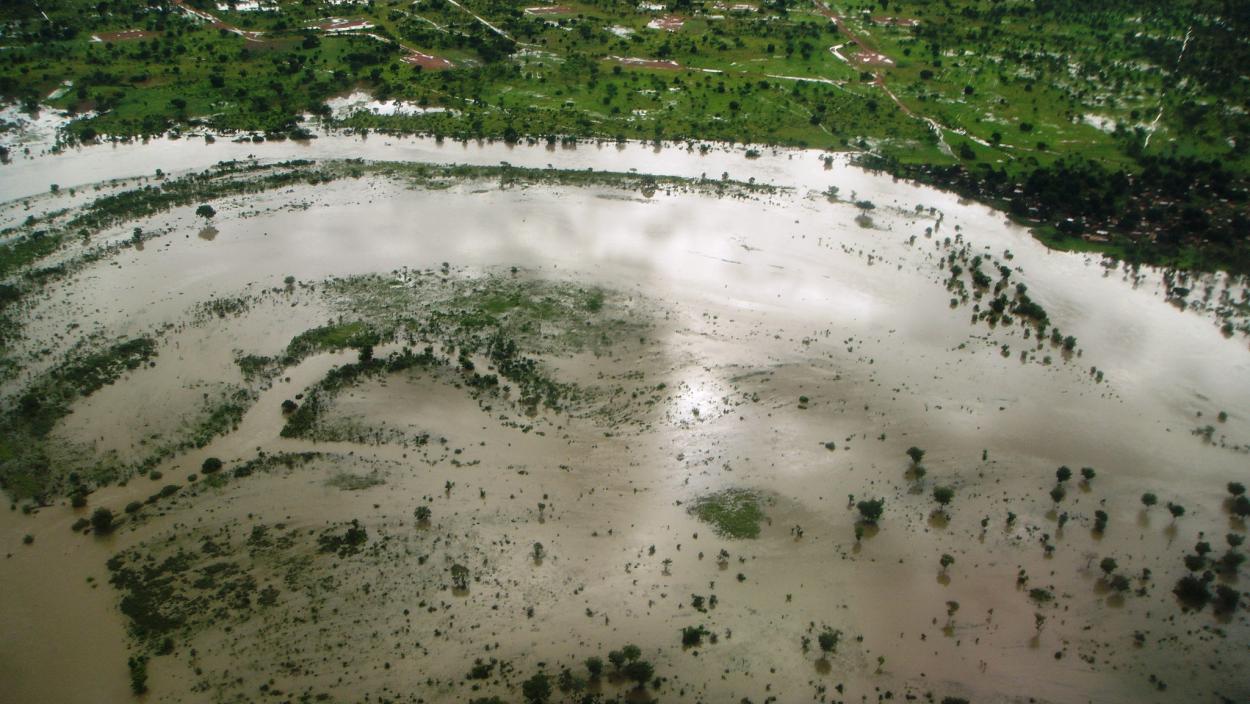B5 – Disaster Risk Reduction: an under-utilised ‘solution’ to the climate security challenge?

This workshop starts from the premise that Disaster Risk Reduction (DRR) has been underutilized as a potential ‘solution’ to the climate security challenge. Those outside the DRR community may be less familiar with the fact that the fundamental components of disaster risk – such as exposure, vulnerability and capacity – are influenced by contexts of fragility, conflict, insecurity, and violence. Yet, discussions on DRR in these contexts are often missing from global dialogues on the security impacts of climate change, climate extremes and climate-related disasters.
The workshop fills this gap by facilitating an inclusive debate on the headline question of ‘what types of DRR actions are viable and appropriate in contexts where climate security is a risk’?
The workshop is necessary because:
- Disasters are not conflictneutral. Fragility, conflict, insecurity, and violence influence where and when disasters happen – and need to be part of the conversation about how climate and disaster risk can be reduced. Accelerating DRR in contexts of conflict and climate risk holds potential to act as a form of upstream conflict prevention.
- Prioritizing and accelerating DRR outcomes for poor and marginalized groups in fragile, conflict affected and violent contexts especially those experiencing intersecting inequalities - requires deliberate laws and policies and a concerted effort by local, national and international actors. There is some experience of this to date, but it is yet to be harnessed in ways that speak to the climate security experts.
- Despite growing knowledge about the complex interplay between drivers of disasters, climate and conflict, more actionoriented research and programming is needed, particularly around sub-national conflicts, to understand what DRR actions may be viable and appropriate in these difficult operating environments.
Objectives
- Present and discuss solutions for how to accelerate delivery of DRR in contexts of fragility, conflict, insecurity, and violence, drawing on a diversity of perspectives, experiences and lessons. To bring the wealth of experience, expertise and lessons from DRR to the climate security community of practice.
- Promote the importance of considering DRR in contexts of fragility, conflict, insecurity, and violence in international agendas and raise awareness of the challenges for implementation.
- Share and discuss tools, methods and appropriate institutional setups for DRR when working in contexts of fragility, conflict, insecurity, and violence. And discuss potential synergies with current proposals to address climate security impacts.
- To define a set of ideas/proposals to take from the Planetary Security Conference and bring to the DRR community at the Global Platform for Disaster Risk Reduction, Geneva (May 2019).
16:30-16:45 (15 mins) Opening remarks, by Katie Peters, ODI, introducing the topic: DRR as an underutilized ‘solution’ to climate security impacts.
Two debates will be held, as follows:
16:45-17:15 (30 mins) Debate 1: What evidence and practical experience exists to suggest that DRR offers a potential contribution to climate security impacts? What are the limits of the DRR contribution?
Speakers:
- Dr Veronique Barbelet, Humanitarian Policy Group
- Dr Ayesha Siddiqi, Royal Holloway University
17:15-17:45 (30 mins) Debate 2: What types of DRR actions are viable and appropriate for addressing climate security impacts, and how can these be better identified and pursued in the future?
Speakers:
- Banak Wal, Director General, Disaster Management, Ministry of Humanitarian Affairs, South Sudan and National Disaster Risk Reduction Focal Point
- Bijay Kumar, Executive Director, Global Network for Civil Society Organizations for Disaster Reduction
- Kassem Chaalan, Lebanese Red Cross
17:45-18:00 (10 mins) Closing remarks and next steps. The workshop will close with a discussion and identification of a set of ideas and commitments on practical next steps for bringing the contributions of the DRR expertise to the climate security debates, and vice-versa. Closing remarks and next steps, by Katie Peters, ODI.
Picture credit: Flickr/Ken Doerr


